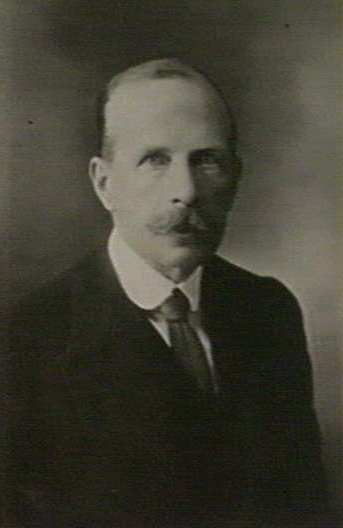- William Ellison-Macartney
Infobox Officeholder
honorific-prefix = The Rt. Hon.
Sir
name = William Ellison-Macartney
honorific-suffix = KCMG

imagesize =
small
caption =
order = 11th
office = Governor of Tasmania
term_start =4 June 1913
term_end =31 March 1917
lieutenant =
monarch = King George V
predecessor = Sir Henry Barron
successor = Sir Francis Newdigate Newdegate
order2 = 19th
office2 = Governor of Western Australia
term_start2 =9 April 1917
term_end2 =9 April 1920
lieutenant2 =
monarch2 = King George V
predecessor2 = Sir Henry Barron
successor2 = Sir Francis Newdigate Newdegate
birth_date = birth date|1852|6|7
birth_place =Dublin ,Ireland , UK
death_date = death date and age|1924|12|4|1852|6|7
death_place =Chelsea, London ,England , UK
restingplace =
restingplacecoordinates =
birthname = William Grey Ellison
nationality = British
spouse = Ettie Myers ScottSir William Grey Ellison-Macartney, KCMG (
7 June 1852 –4 December 1924 ) was a British politician, who also served as the Governor of the Australian states ofTasmania andWestern Australia .Early life
He was born William Grey Ellison in
Dublin ,Ireland , the son of John William Ellison, the Conservative MP for Tyrone in theBritish House of Commons . His father changed the family surname to Ellison-Macartney in 1859, as a condition of an inheritance from a maternal uncle. [http://www.ccentre.wa.gov.au/index.cfm?event=governorsWilliammacartney Sir William Grey Ellison-Macartney 1917-1920] , Constitutional Centre of Western Australia.]Ellison-Macartney was educated at Eton and
Exeter College, Oxford , taking an early interest in law and politics, and was called to the Bar in 1878. [http://www.ulsterbiography.co.uk/biogsMac1.htm Macartney, Sir William Grey Ellison (1852 - 1924)] , "Dictionary of Ulster Biography".] He was an ardent supporter of Irish Unionism, and became grand secretary of theOrange Institution in Ireland.Michael Roe, [http://www.adb.online.anu.edu.au/biogs/A100195b.htm Macartney, Sir William Grey Ellison (1852 - 1924)] , "Australian Dictionary of Biography ", Volume 10, Melbourne University Press, 1986, p. 202.]Political career
At the 1885 UK general election, Ellison-Macartney ran for the House of Commons, and was elected as Conservative member for the newly-created constituency of Antrim South. In January 1886, he convened a meeting which lead to the formation of the Irish Unionist Party, for which he served as whip.
In 1895, he was appointed as Parliamentary and Financial Secretary to the Admiralty, holding the post until 1890, when a cabinet reshuffle resulted in the appointment of Liberal Unionist
Hugh Oakeley Arnold-Forster . As a consolation, Ellison-Macartney was appointed to the Privy Council.By 1900, Ellison-Macartney's political fortunes had waned: his popularity in his constituency of South Antrim had dropped considerably due to his reluctance to dispense favour upon Antrim during his time as a junior minister, and he was criticised by the
Belfast newspaper "The News Letter ". Hoping to reassert his place in the loyalist hierarchy, Ellison-Macartney led a "law-and-order" campaign, targeted in particular at the violence and agrarian crime committed byWilliam O'Brien 'sUnited Irish League . [cite book |title=The Ulster Party: Irish Unionists in the House of Commons, 1884-1911 |last= Jackson |first=Alvin |year=1989 |publisher=Oxford University Press |location=UK |isbn=0198222882 |pages=pp. 246-247 ] He retired from politics in 1903, after being offered several government appointments.Government postings
Ellison-Macartney was appointed Deputy-Master of the
Royal Mint from 1903 to 1913, andSheriff of County Antrim in 1908.Governor of Tasmania
In December 1912, he was knighted KCMG, and appointed Governor of the
Australia n state ofTasmania . There was considerable concern over his appointment from Irish nationalists, who felt that Ellison-Macartney's Unionist political background may cause offence to Tasmanians who supported IrishHome Rule .In 1914, Ellison-Macartney presided over a constitutional dispute in the
Tasmanian House of Assembly . With the Labor and Liberal parties close to deadlock in the parliament, he granted an early election to the LiberalPremier of Tasmania ,Albert Solomon . The Liberals gained an extra seat needed to retain power, but lost one in a subsequent by-election. Ellison-Macartney declined Solomon's request for anotherdissolution of parliament , and he called upon Labor'sJohn Earle to form government, on the condition that an election be called. [Eldershaw, P.R.: [http://www.archives.tas.gov.au/guides/GO_guide.pdf Guide to the Public Records of Tasmania - Section 2 - Governor's Office] ,Archives Office of Tasmania , 1958.] With Earle and his ministry sworn in, neither side desired to hold an election so parliament remained in session, with Ellison-Macartney's recommendations over-ridden by theSecretary of State for the Colonies .Governor of Western Australia
Like Sir Harry Baron before him, and Sir Francis Newdegate after him, Ellison-Macartney was transferred as Governor from Tasmania to
Western Australia . His term in Western Australia was not a happy one – his critical comments about Tasmanian politicians had made Western Australians wary of his attitude, and he had to deal with the state's post-World War I economic depression and continued objection to his Unionist stance from those supportive of Irish Home Rule.As he had in Tasmania, he participated regularly in
Freemasonry , and served as grand master of the Hobart and Perth masonic lodges during his respective terms.Ellison-Macartney returned to England after a three-year term. He died in
Chelsea, London , aged 72.Family
Ellison-Macartney was the son of John William Ellison and Elizabeth Phoebe Ellison, née Porter. On
5 August 1897 , he married Ettie Myers Scott atHolcombe, Somerset , and she would bear him three children: a son and two daughters. Ettie was the sister ofRobert Falcon Scott , the Antarctic explorer.References
Wikimedia Foundation. 2010.
